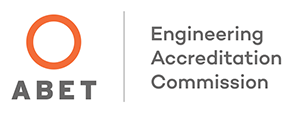Program Accreditation – Chemical Engineering
Bachelor of Science (B.S.) Degree in Chemical Engineering
The Chemical Engineering Program is accredited by the Engineering Accreditation Commission (EAC) of ABET, under the commission’s General Criteria and Program Criteria for Chemical Engineering. This program leads to a Bachelor of Science degree in chemical engineering.
Program Data

